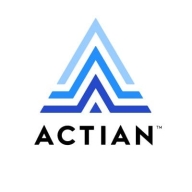

Actian DataCloud and MuleSoft Anypoint Platform are integration and data management solutions. MuleSoft Anypoint Platform seems to have the upper hand due to its extensive features and perceived value despite potentially higher costs.
Features: Actian DataCloud provides efficient data integration and transformation capabilities with a focus on cloud integration services. MuleSoft Anypoint Platform is adept in API management offering comprehensive tools for API development and lifecycle management. Actian is recognized for its simplicity and speed in processing data integrations. MuleSoft offers a broad range of connectors and pre-built templates that enhance integration efficiency and provides versatile and scalable solutions suitable for complex ecosystems.
Ease of Deployment and Customer Service: MuleSoft Anypoint Platform provides robust deployment models with strong support services which facilitate smooth integration processes and technical assistance. Actian DataCloud is known for its straightforward deployment but may have more limited support options. MuleSoft’s comprehensive onboarding and ongoing support services give it an advantage in handling complex integration challenges.
Pricing and ROI: Actian DataCloud presents lower upfront costs attracting budget-conscious customers seeking basic integration services. MuleSoft Anypoint Platform has higher initial costs but offers significant ROI due to its extensive capabilities and strategic advantages in large-scale, multi-departmental projects. Businesses often find the investment in MuleSoft justified by its comprehensive features and adaptable infrastructure.
| Product | Market Share (%) |
|---|---|
| MuleSoft Anypoint Platform | 5.5% |
| Actian DataCloud | 0.7% |
| Other | 93.8% |
| Company Size | Count |
|---|---|
| Small Business | 22 |
| Midsize Enterprise | 12 |
| Large Enterprise | 30 |
Actian DataCloud is a secure, elastic cloud-based platform that integrates cloud and on-premises applications and data. Customers depend on Actian DataCloud to remove friction from data integration while providing universal connectivity, scalability, and enterprise security that is SSAE 16 certified. Actian DataCloud helps free you from data infrastructure concerns so you can focus on business-critical priorities.
MuleSoft Anypoint Platform provides API management and integration capabilities with scalability, ensuring seamless connectivity across systems.
MuleSoft Anypoint Platform offers API management and integration capabilities within a user-friendly interface. With a range of connectors and the ability to handle integration patterns, it enables data integration across environments with support for API-led connectivity. High scalability, observability, batch processing, and tooling are key features, enhancing performance while simplifying deployment.
What are the standout features of MuleSoft Anypoint Platform?MuleSoft Anypoint Platform is employed by organizations for API management and seamless integration across systems in industries like retail and e-commerce. It connects enterprise applications in environments such as SAP and Salesforce. Users leverage it for data transformation and synchronization, achieving efficient real-time processing and a middleware layer across systems.
We monitor all Cloud Data Integration reviews to prevent fraudulent reviews and keep review quality high. We do not post reviews by company employees or direct competitors. We validate each review for authenticity via cross-reference with LinkedIn, and personal follow-up with the reviewer when necessary.